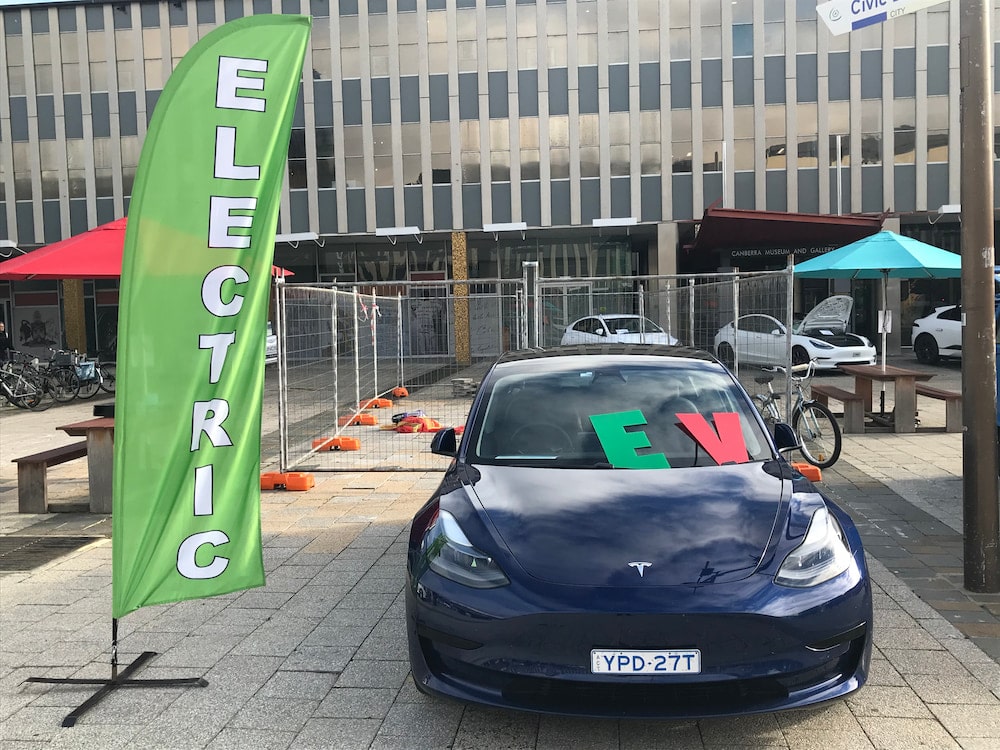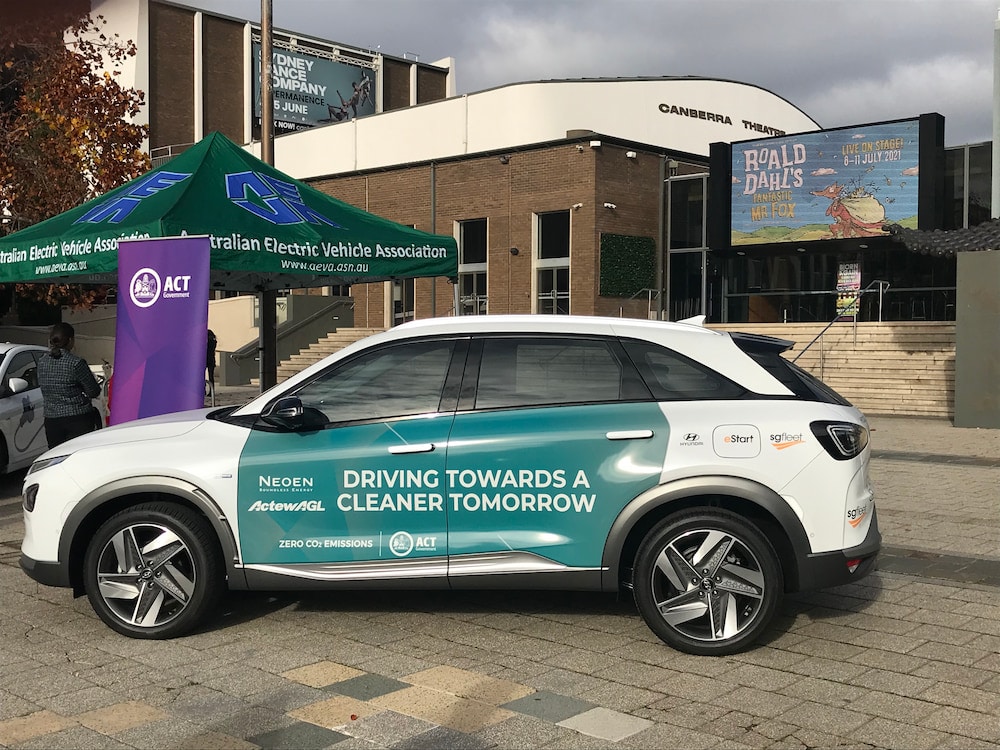The ACT Government has thrown down the gauntlet to the rest of Australia: two years of free registration for newly purchased zero emissions vehicles (ZEVs) and second-hand ‘grey’ imports until June 2024.
“It’s the right policy, the right thing to do,” Chief Minister Andrew Barr said. “My challenge today is to every other state and territory government to follow the ACT.”
The Federal Government is hostile to electric vehicles; at the 2019 election, Scott Morrison claimed Bill Shorten’s plan to introduce a 50% target of new electric car sales by 2030 would “end the weekend”. Meanwhile, Victoria and South Australia will introduce a new tax for electric vehicles this year – a policy Shane Rattenbury, Minister for Energy and Emissions Reduction, claims is “disastrous”.
“When Australia’s electric vehicles are less than 1% of new vehicle sales, we need to be encouraging electric vehicles, not providing some new barrier,” he said.
But electric vehicles are the future, Mr Barr believes. The internal combustion engine has had its day. Over the next decade, as the scale of electric vehicle manufacturing increases, from dozens to hundreds of models available, the price of vehicles will drop rapidly from more than $40,000 to an average of $20,000.
“This change is inevitable, and it is going to happen a lot more quickly than many in the community, many in the media, and certainly most on the conservative side of politics realise,” Mr Barr said.
“The ACT has an opportunity here to ‘drive action’ across the nation by starting a race amongst the states and territories to have the best policies to encourage the transition to zero emission vehicles.”

There are already almost 1,000 registered electric vehicles in the ACT, while the ACT Government has the largest fleet in Australia (140 ZEVs). (It was awarded the 2021 Fleet Environment Award last week.) Canberrans, on average the most environmentally conscious citizens in Australia and the wealthiest, were early adapters of new technology, Mr Barr said.
The ACT Government will soon set a target for electric vehicles. The ACT Greens believe it should be 90% of all new car sales – a staggering figure, perhaps, but Mr Rattenbury expects to see price parity with petrol cars by the middle of this decade. Privately owned vehicles produce 70% of the ACT’s transport emissions, so improving their performance is necessary to achieve net zero emissions by 2045.
The free registrations would encourage more uptake, Mr Rattenbury said, eliminating the two big barriers to purchase: pricing and range anxiety (distance between charging stations).
Mr Barr estimated the free registration would save purchasers more than $1,000 each year. Combined with stamp duty saving, it would discount 4% to 6% of the price of a new electric vehicle. At present, registration is aligned with the weight of the vehicle; most electric vehicles fall into the heavy vehicle category (up to $570 each year), due to the weight of the battery. Mr Barr intends to align registration costs with how many emissions the cars produce.
The ACT Government promised 50 more publicly accessible charging stations in this year’s budget; Mr Barr envisages “hundreds and hundreds and hundreds” of charging sites over the next five years – whether in government carparks or by mandating that every petrol station have an electric charging station.
If Labor wins this year’s election, Anthony Albanese has promised to cut import tariffs and fringe benefits tax on non-luxury electric vehicles. Mr Rattenbury disagreed with the Prime Minister’s notion that electric vehicles would end the weekend; in the United States, vans and caravans were already electric.

“The Federal Government would do well to stop the culture war on the future and actually start to embrace this technology. It’s inevitable. The auto makers are going to stop making petrol vehicles. Australia needs to gear up to make sure we’re ready for the future,” Mr Rattenbury said.
The Norwegian ambassador, Paul Gulleik Larsen, congratulated the ACT Government on leading the nation on low emissions policy and incentives. Last year, Norway became the first country in the world where more electric cars were sold than any other sort of vehicle; on average, 54% of all new cars sold were electric (67% in December). Norway plans to end the sale of fossil fuel vehicles by 2025.
Mark Hemmingsen, president of the Australian Electric Vehicle Association – ACT Branch, also commended the ACT Government. The AEVA had pushed for this initiative for a decade. “It makes it more normalised,” he said. “People will think about purchasing an electric vehicle for their next car. It’s evidence that it actually exists and you can do it.”
For more news:



